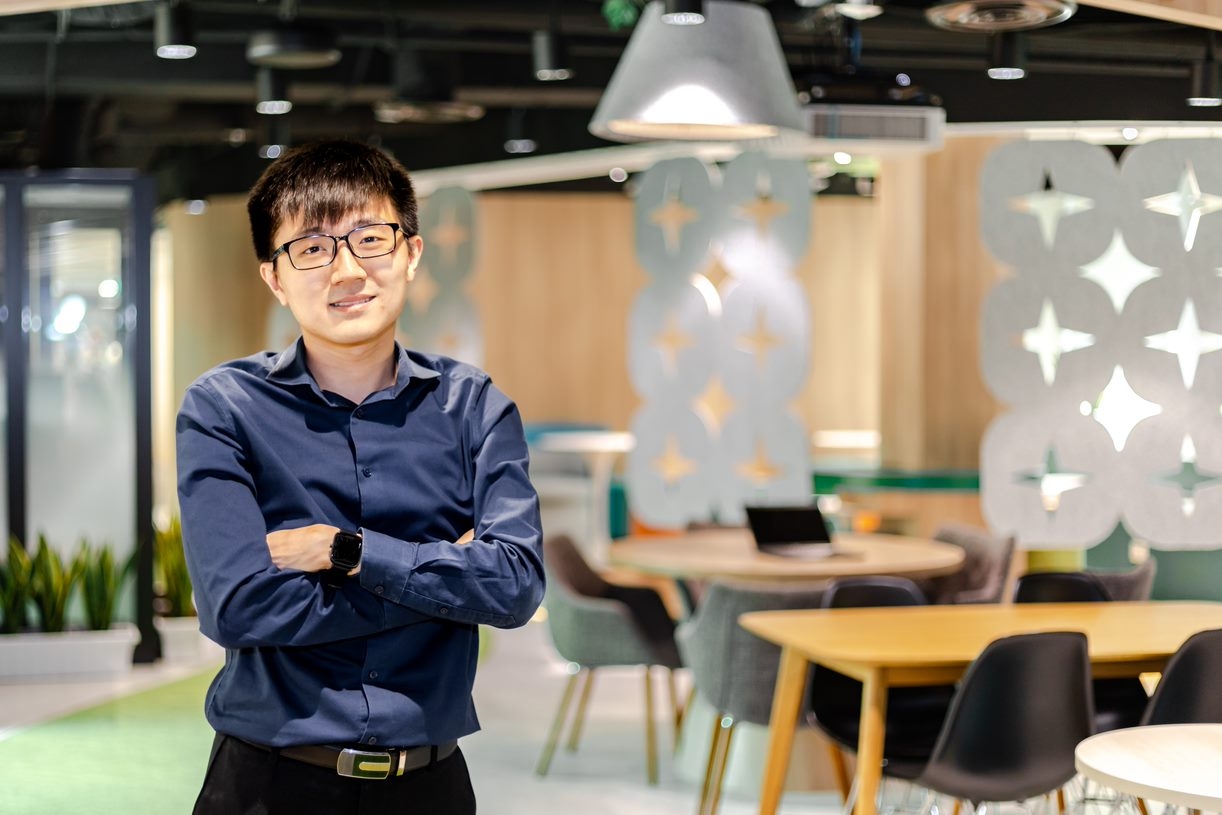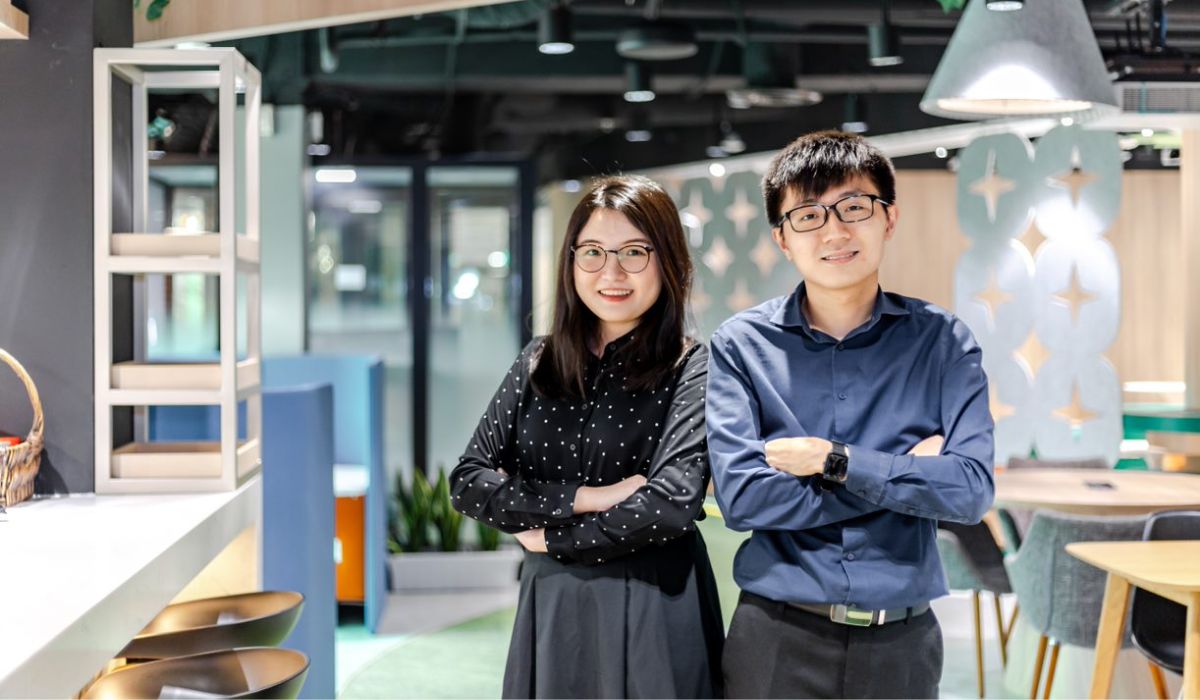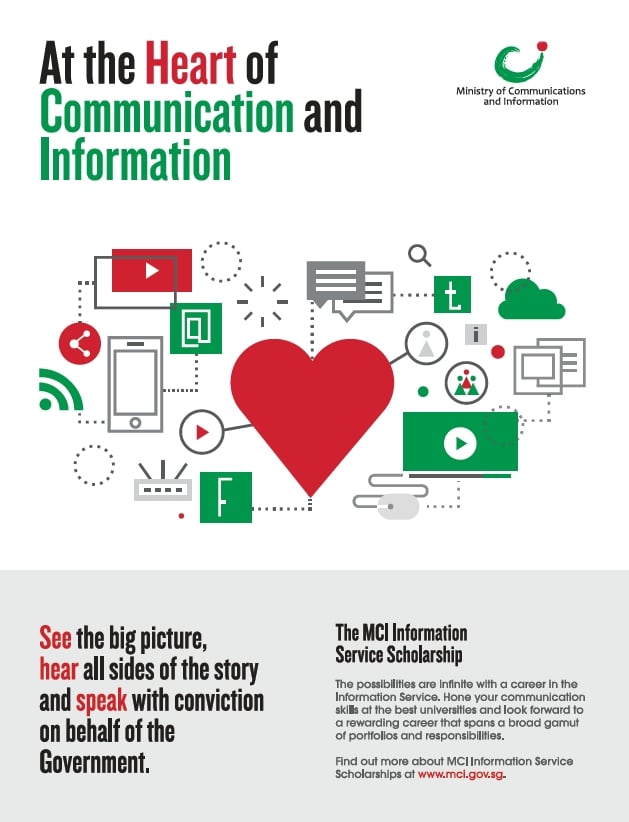Left: Hoo Ka Hei is a MCI Information Service (Translation) Scholarship (Mid-Term) recipient and she holds a Bachelor in Linguistics and Multilingual Studies at NTU. She will be pursuing a master's degree in Translation and Technology (with Interpreting) at University College London. Ka Hei is currently interning at MCI's Translation Department.
Right: Chua Zong Han conceptualises and implements marketing communications strategies for key Government messages. He is a MCI Information Service scholar, and he holds a Bachelor of Social Sciences in Political Science at NUS.
Most of us would have played the game, Broken Telephone, during our childhood or even at corporate retreats. For those who haven’t, the objective of the game is to transmit the message from one end of the human chain to another by whispering into each other’s ears. Oftentimes, the message would emerge much distorted, amidst plenty of laughter.
The game is a simple illustration of the important role of communications. When it comes to the communication of government policies and information to citizens, it is critical to ensure that messages are communicated clearly so that citizens understand and are engaged on national and social issues.
In Singapore, the important mandate of overseeing the Government’s information and public communication policies falls under the Ministry of Communications and Information (MCI). The MCI also oversees the development of the infocomm technology, cyber security, and media sectors.
Undertaking MCI’s important work are officers like Chua Zong Han and Hoo Ka Hei.
Zong Han is currently an Assistant Manager (Campaigns and Production) under the Public Communications Division, where he works closely with other ministries and agencies on the conceptualisation and implementation of marketing communications strategies for key Government messages.
Ka Hei is currently interning in the Translation Department which seeks to reach out to Singaporeans through the support of multilingual communications and the provision of translation services in the four main languages for MCI’s work and important national initiatives.
We spoke with the duo, who are both recipients of the MCI Information Service Scholarship, on their scholarship journey with MCI and the important work that they do at MCI.

Hoo Ka Hei
To start, how did both of you get interested in the MCI Information Service Scholarship?
Zong Han: I have always had a strong interest in working in the public service, and what later drew me to public communications was when I developed a deeper understanding of its importance as an interface through which the field of policymaking intersects with the public sphere.
It takes good communication to break down complex policies for the public, both to convince them of the Government’s rationale as well as to secure their continued trust and confidence in the Government’s decision-making. Similarly, when the government develops new initiatives or schemes, communication plays an important role in ensuring that these schemes are widely communicated and are able to reach the right target audience.
So, when I was considering scholarships, MCI’s offering fit my interest and aspirations to a tee.
Ka Hei: Translation and interpretation have always been a part of my life since young, as I frequently helped my non-English speaking parents with translations. However, my interest in this field came much later. Previously, I always assumed that all bilinguals are naturally competent translators. I only realised the complexities and intricacies of this subject after enrolling in a translation module in polytechnic. I was further drawn to this subject when I realised how my language skills can help bridge communication barriers between people from different speech communities during my volunteering experience in a hospital.
The MCI Information Service (Translation) Scholarship caught my attention as it aligned with my interest in language and communication. While other scholarships that allow me to use my language skills were also considered, they are typically constrained to one language, unlike the MCI Information Service (Translation) Scholarship which involves both English and Chinese.

Chua Zong Han
How did MCI support your scholarship journey?
Ka Hei: MCI provides funding for developmental programmes such as overseas exchange while we are studying. Although I was unable to leverage these opportunities during the course of my studies due to the pandemic, MCI will be providing full sponsorship for my master’s programme in the UK after my undergraduate studies. I was rather surprised to find that MCI is extremely flexible and gives us the autonomy to choose the programmes we want to pursue, as long as we can justify how it can benefit our career development.
Zong Han: MCI was very supportive of my choices to enrich my academic experiences, such as financially supporting my decision to pursue an exchange semester in China, which was an eye-opening experience for me.
I also appreciated the fact that the scholarship gave me the opportunity to experience working in MCI through an internship, and was also flexible enough to allow me to pursue different working opportunities that are not related to communications during my summer breaks. All these experiences helped to broaden my horizons and widen my perspectives.
Zong Han, tell us more about your current role.
Zong Han: I am currently working in the Campaigns and Production Department. My department’s role is to design and develop campaigns intended for Whole-of-Government policies and issues – such as Covid-19 or the yearly Budget or even perennial issues like cost of living.
A campaign that stood out would be the Budget 2022 campaign. Apart from the tight timelines, it was a difficult Budget to approach because of the topic of the GST being raised. This was compounded by the fact that we were going through a period where the cost of living was on the rise due to the global situation. As such, it required us to approach the issue in a delicate fashion and be able to use appropriate tools to tease out the underlying rationale for a GST increase and convince Singaporeans on how the policy would be able to benefit both current and future generations of Singaporeans in the long run. ties that are not related to communications during my summer breaks. All these experiences helped to broaden my horizons and widen my perspectives.
Ka Hei, how is your experience as an intern at MCI, and what are you looking forward to the most after pursuing your master’s degree?
Ka Hei: At the Translation Department, we produce and promote translations. I am expected to deliver accurate and effective translations for both public communications and internal use. I also assist in translation-related projects, such as outreach events to encourage interest in translation among students, as well as partnerships with agencies and the public to raise local translation standards.
As I will be studying translation technology for my Masters, I hope to draw on this experience to enhance the integration of technology in our local translators’ workflow. Furthermore, I am also looking forward to promoting machine translation literacy among the public. Our translation department is already working on this, so hopefully I can be a helpful addition to the team after completing my studies. I am also excited about posting opportunities within MCI and to other public agencies to meet new faces and learn more about other portfolios.
What would you say to convince someone to consider the MCI scholarship?
Ka Hei: A career with MCI will be very dynamic and varied, so you will be glad to know that a day at work will never be mundane. It may be challenging at times, just like any other job, but it will most definitely be an exciting and fulfilling journey!
Zong Han: MCI’s work is diverse. I had the opportunity to work in several different departments, and each one has been a learning experience for me, from conducting sensing to better understand public sentiments, to developing campaigns to communicate policies to the public.
If you are looking for a career where every new posting is a new learning opportunity to expand your skillset and further your understanding of how different aspects of public communications come together, then MCI would be a great choice for you.



